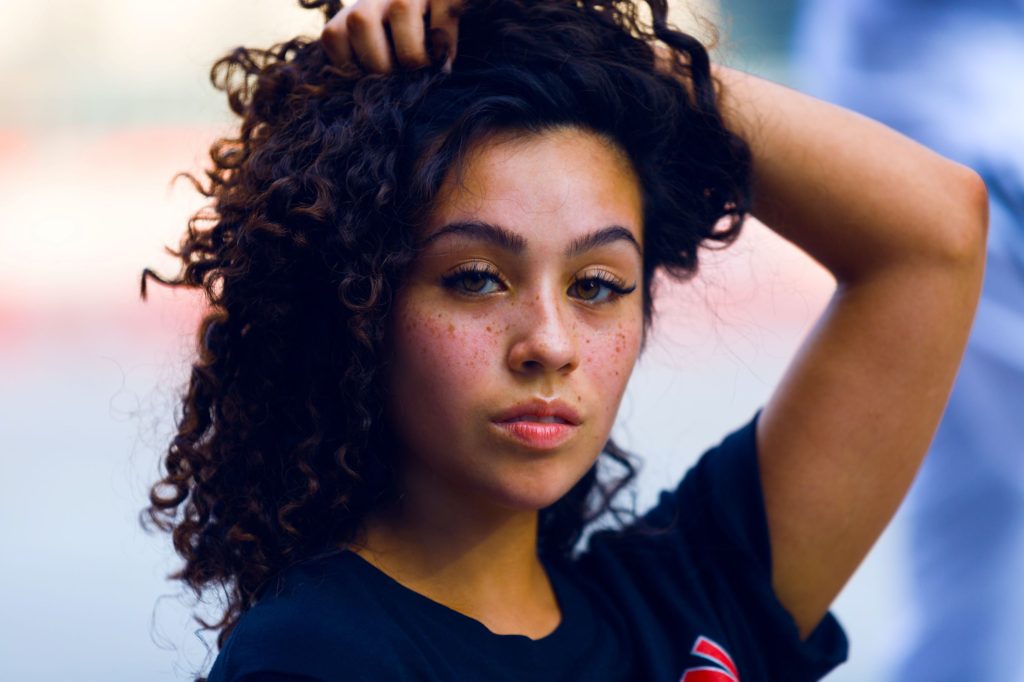
8 simple treatments for acne management
It is a skin condition in which bacteria or something else has irritated the skin and caused it to develop what are sores. These are red, pimple-like masses that are not only uncomfortable but can be damaging to the person’s self-esteem as well. Acne needs to be treated.
Let us understand acne
Every type of acne blemish, no matter how severe or how large, begins in a follicle. That is, all pimples, ail blackheads, all whiteheads, all large red bumps and all cysts start in follicles. All these types of lesions, everything that happens in acne, begins with the plugging or clogging of a follicle.
Acne is a disease of plugged follicles.
It is a fact that within a follicle affected by acne, the oil glands are large and overactive. This results in the production of more sebum or oil. The excess oil can frequently be seen or felt on the surface of the skin. Therefore, people associate acne with the oiliness of the surface. As a general rule, this is a valid association, but there are exceptions. An acne condition is usually, but not always, accompanied by oiliness of the surface.
Acne occurs only when the oil doesn’t get out!
In acne, the dead cells and oil do not flow smoothly out of the follicle to the surface. Instead of falling apart, the cells stay stuck together and begin to build up along the wall of the follicle. The follicle wall thickens. When this happens it spells trouble. This is how all acne starts. This process will eventually completely plug the follicle with dead cells and oil. All acne starts when the cells that line the follicle remain stuck together. This is the beginning of a process that will plug the follicle. To fight acne and win, you must peel apart those dead cells that are sticking together within the pores.
Acne treatment

Acne can be treated in several ways. First, the bacteria that is hitting and infecting the skin needs to be treated. For this to happen, the bacteria will need to be washed away. This can be done through exfoliating, through medicinal topical treatments or even with the help of lasers.The oil glands need to secrete only the right amounts of oil into the skin. This can be regulated by regulating the hormones that cause it. By taking care of these aspects, the individual’s skin can improve, become healthier and eventually get rid of the infections that have been caused by the bacteria.
1.Use a good quality facial cleansing product.
These are available over the counter. If you know that you are likely to be one to get acne, then use those treatment programs that are designed for acne. You will find that there are many out there but choose the one that allows for the best fit to your specific needs. Use it twice per day, morning and evening.
You can use a wide range of products to wash away the bacteria that hit your skin. If you look at them, make sure that you are not allergic to any of the products that are listed in the medication or cleansing product. Once this is seen, you can begin to see the results of use within a few weeks of use. The cleansers that you use should be that which is designed specifically for acne prevention and treatment. These will allow for the best results in the skin for your purpose.
2.Exfoliate your skin.
There are exfoliating products available to you as well. You should use them, as directed, to help you to get the dead skin cells off of your face as well as help you to get rid of the bacteria on your skin. If your skin becomes too dry when using these products, purchase and use a non-oily moisturizer to help.
3.Using medications i.e. antibiotic.
The job of the antibiotic is to kill the bacteria that are the main culprit behind acne. They can be used as topical treatments especially when the acne is confined to one or just a few small amounts of area. There are also oral antibiotics that can be used as well. These are ideal for those that are experiencing acne in larger areas of the body.
4.Hormone treatment
The glands that are under your skin are usually producing high amounts of oil. When you have acne, the bacteria will be attracted to these areas for warmth and moisture. While antibiotics can treat bacteria, hormone treatments can work to stop or slow down the flow of oils. Most who have high levels of acne will have hormones that are all out of whack. Once they get this under control, the glands will go back to producing normal amounts of oil again.
5.Fruits treatment
Fruits are also held to be an effective acne home remedy. Try applying strawberry leaves directly to the area and leave the on for a while. Fresh lemon juice (not concentrated) or lime mixed with rose water is another acne home remedy you can try. Apply to your face and leave for 15 minutes. Try this one for 15 days and you just might be amazed at the results! Ground orange peel, mixed with water into a paste, can be effective in treating an outbreak. Apply and leave for 15-20 minutes, then rinse the paste off with warm water. Papaya juice is also widely held to be effective. Fresh tomato paste can be used much like the orange peel paste as well.
6.Salt and Vinegar
A solution of salt water, with or without vinegar, can help clear up your acne both by drying your skin (removing excess oils) and by helping disinfect. Wash your face twice a day with a salt water (and vinegar if you like) solution. Just don’t make the remedy too strong, mildly salty is best. For stubborn spots, make a stronger solution, apply to the swollen area, and leave on for 15-20 minutes.
7.Eat a balanced diet that is full of the nutrients your body needs.
This will include lots of fruits and vegetables. Although this will not help with getting rid of acne, it will help your body to have a fighting chance at having what it needs to fight off infections.
8.Use a multivitamin.
If you are prone to acne outbreaks, you may want to consider a regiment that is designed for acne itself. These are ideal because they can provide for you a wide range of nutrients that most individuals do not get enough of.
Acne prevention
There are many medications on the market to help with acne. Some of these will work well for those that have acne. Some will not work for you. The best way to not have acne is to work on preventing it from happening instead of just waiting for it to happen and then treating it. This is the best way to go when you would like to keep your acne-free or low acne infected face that way.

1. Keep your face clean.
Whether or not you have acne, it’s important to wash your face twice daily to remove impurities, dead skin cells, and extra oil from your skin’s surface. Washing more often than twice daily is not necessarily better; it may do more harm than good. Use warm, not hot, water and a mild facial cleanser. Using a harsh soap (like deodorant body soap) can hurt already inflamed skin and cause more irritation. Avoid scrubbing your skin harshly with a washcloth, an exfoliating glove, or loofah (a coarse-textured sponge). Gently wash it with a very soft cloth or your hands. Always rinse well, and then dry your face with a clean towel. (Toss the towel in the laundry hamper, as dirty towels spread bacteria.) Also, use the washcloth only once.
2.Dry Brush the skin
Dry skin brushing should be performed daily before your shower or bath. Using a long-handled natural bristle brush— start by brushing upwards from the soles of your feet up to your neck, in either long sweeping strokes or circular motions, always brushing towards your heart. Gently brushing the skin for just 5 minutes daily with a natural bristle brush not only enhances the appearance of the skin by sloughing off old, dead skin cells and helping new, healthy skin cells to regenerate, but this incredible anti-ageing exfoliation treatment heals the whole entire body.
3.Eat a Rainbow of Fruits and Veggies
It’s crucial for good healthy skin, anti-ageing, and disease prevention to include a wide array of healthy, vibrant coloured, seasonal fruits and vegetables in your daily diet. The brighter and more vibrant the colour, the more vitamins and nutrients, as well as flavour are found in the produce. There are literally thousands of health-promoting phytonutrients found in brightly coloured produce. Each of these food colour categories (green, red/pink, orange/yellow, blue/purple, white/beige) contain different and unique phytonutrients which are essential to our health. Phytonutrients contain powerful antioxidant properties that protect the body against free radical damage and play a significant role in the prevention of acne and other diseases.
4.Antioxidant for acne prevention
Free radicals are oxidants that break down healthy cells in the body. Free radicals are produced from everyday environmental toxins and external sources such as stress, pollution, cigarette smoke, alcohol, excessive sun exposure, and pesticides.
Antioxidants are a crucial component for eradicating free radicals. Foods high in antioxidants destroy free radicals that damage cells. Antioxidants also promote the growth of healthy cells which prevent acne, protects cells against premature ageing, and strengthens the immune system, while reducing your risk of diseases like cancer and heart disease.
The Most Common Antioxidants are Vitamins A, C, and E, beta carotene, selenium, and CoQ10. Natural anti-ageing antioxidants are found in healthy high-fibre fruits, vegetables, whole grains, nuts, seeds, and foods high in protein. If you really want to turn back the clock, while strengthening your immune system and reducing your risk of diseases like cancer and heart disease, add more anti-ageing antioxidant-rich foods to your diet.
5.Do not pop the acne
Unfortunately, there is no 100% sure-fire way to prevent or heal acne. Sometimes, despite your best efforts, you will get the dreaded zit. Just take care of it as best you can, and do not pop it. You will be very tempted, and it seems like logically it could only help. But popping the acne causes further damage to the skin, and forces bacteria into the freshly created damage, spreading the acne further. Popping the pimple also greatly increases the chance of scarring.